Buttermilk Chicken NYT: A Spicy Makeover for Your Classic Recipe!
If you've ever flipped through the pages of The New York Times' culinary section, you’ve probably seen their beloved buttermilk chicken recipe. It’s a classic for a reason — crispy on the outside, juicy on the inside, and oh-so-comforting. But let's be honest, even classics can use a little spice upgrade from time to time.
In this article, we’re diving into some Innovative Spice Pairings that will transform your everyday buttermilk chicken into something truly extraordinary. Whether you're a seasoned chef or a weekend warrior in the kitchen, these tips are sure to impress your taste buds — and maybe even your guests.
Table of Contents
- Why Buttermilk?
- Spice 101: What You Should Know Before Diving In
- Top 5 Innovative Spice Pairings for Buttermilk Chicken
- Pro Tips for Perfectly Spiced Buttermilk Chicken
- How to Serve Like a Pro (Even If You’re Eating Off the Couch)
- Final Thoughts
Why Buttermilk?
Before we get into spices, let’s talk about what makes buttermilk so special. Contrary to its name, modern buttermilk isn't actually buttery at all. It's a fermented dairy product with a tangy flavor and thick consistency that works wonders on poultry.
- Tenderizing Powerhouse: The acidity in buttermilk helps break down proteins, resulting in more tender meat.
- Flavor Carrier: Buttermilk soaks into the chicken and carries other flavors along with it — making it the ultimate sidekick to spices.
- Crispy Crust Secret: When combined with flour and fried, buttermilk contributes to that irresistible crunch.
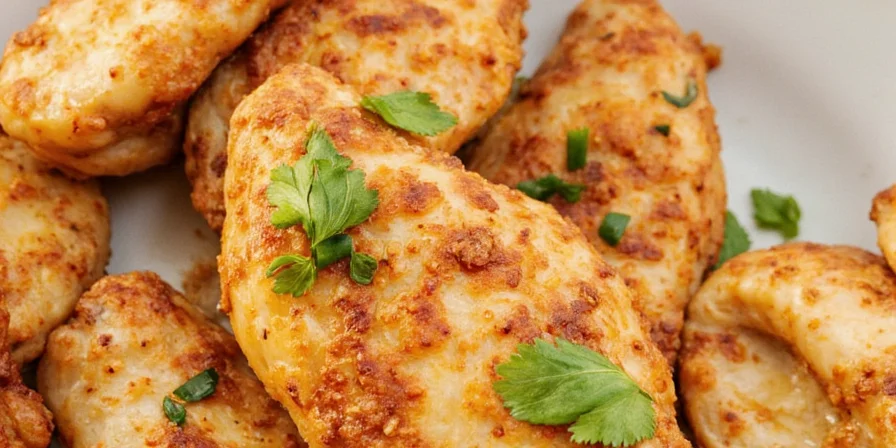
Spice 101: What You Should Know Before Diving In
Spices are like the makeup of food — applied correctly, they enhance natural beauty; overdone, and you end up looking like a flamingo after a rave. Here’s how to make the most of your spice game:
| Spice Type | Flavor Profile | Best Used With |
|---|---|---|
| Paprika | Sweet, smoky, slightly earthy | Mild heat lovers, roasted dishes |
| Cayenne Pepper | Hot, sharp, spicy kick | Those who love fire on their tongue |
| Cumin | Earthy, nutty, warm | Mexican, Middle Eastern, Indian dishes |
| Coriander | Citrusy, sweet, floral | Fish, legumes, root vegetables |
| Garam Masala | Complex, warm, aromatic blend | Curries, stews, grilled meats |
Top 5 Innovative Spice Pairings for Buttermilk Chicken
Let’s take your buttermilk chicken from “just okay” to “What restaurant did you order this from?” Here are five unexpected yet genius spice pairings to try:
1. Smoked Paprika + Garlic Powder
Flavor Profile: Sweet smoke meets savory depth.
- Smoked paprika gives that outdoor grill vibe without leaving your kitchen.
- Garlic powder adds an umami-rich backbone that ties everything together.
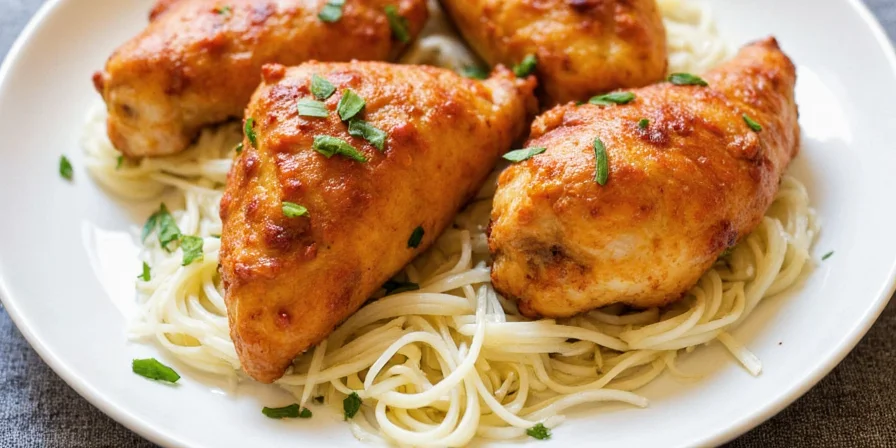
2. Cayenne Pepper + Lemon Zest
Flavor Profile: Fiery meets fresh — like a summer bonfire with a splash of ocean breeze.
- Cayenne brings the heat while lemon zest brightens things up.
- Perfect for those who want boldness without overwhelming spiciness.
3. Cumin + Coriander
Flavor Profile: Warm, earthy, and slightly citrusy.
- This duo is commonly used in Indian and Middle Eastern cuisines and plays surprisingly well with chicken.
- Add a pinch of turmeric for color and extra depth.
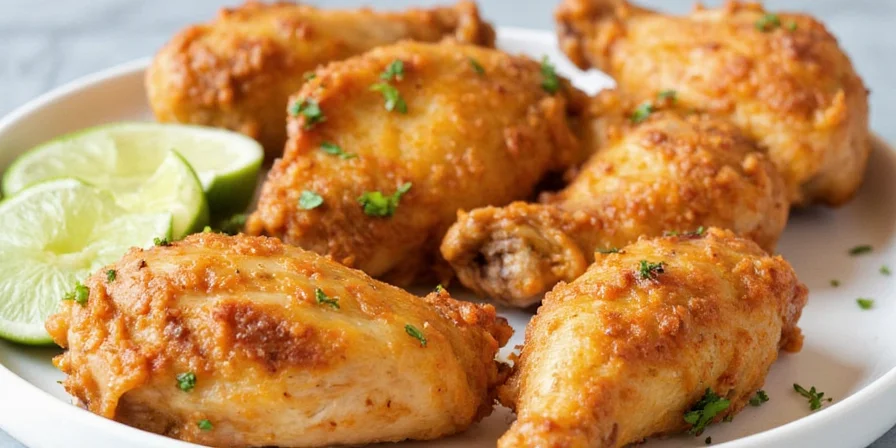
4. Garam Masala + Brown Sugar
Flavor Profile: Complex and slightly sweet with hints of cinnamon and clove.
- The sweetness balances out the spice and creates a caramelized crust when fried.
- Great for fall or winter meals — cozy and deeply aromatic.
5. Za’atar + Sumac
Flavor Profile: Tangy, herbal, and incredibly vibrant.
- Za’atar is a Middle Eastern spice mix that includes thyme, sesame seeds, sumac, and salt.
- Sumac adds a bright citrus note that contrasts beautifully with the richness of fried chicken.
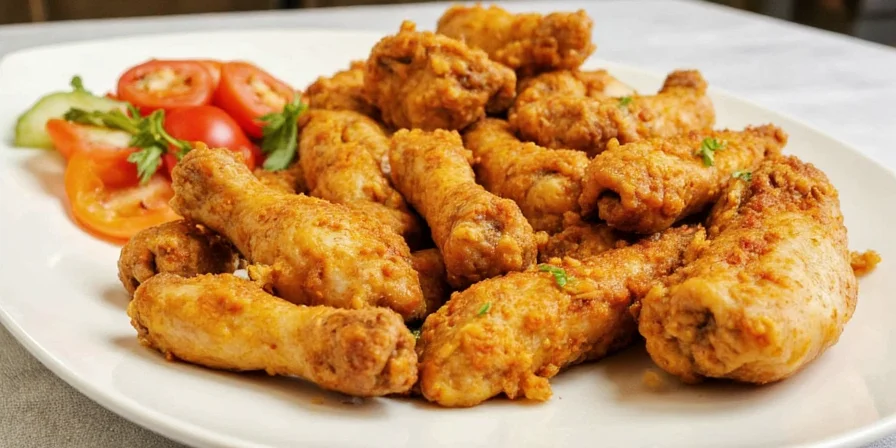
Pro Tips for Perfectly Spiced Buttermilk Chicken
So you’ve got your spices ready — now let’s make sure you’re using them right:
- Dry vs. Wet Rub: For deeper penetration, mix spices into the buttermilk marinade. For surface flavor, sprinkle before frying.
- Balancing Heat: Don’t just go for the burn — balance with sugar, acid (like vinegar or citrus), or fat (think aioli or sour cream).
- Layer Flavors: Season not only the chicken but also the dredge (flour mixture) and even the oil you fry in.
- Rest After Frying: Letting your chicken rest for 5–10 minutes keeps juices locked in and prevents soggy crusts.
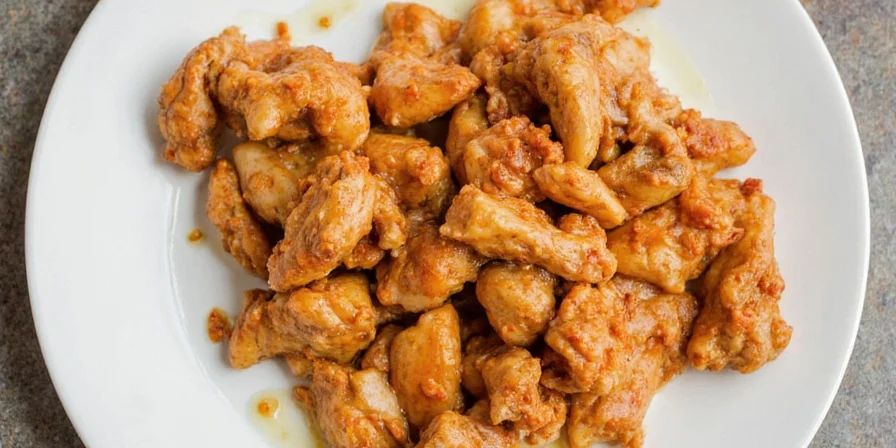
How to Serve Like a Pro (Even If You’re Eating Off the Couch)
Once your spiced-up chicken is golden brown and smelling divine, presentation can elevate the whole experience. Here are some pro-level serving ideas:
- Sidekick Slaw: Try a quick slaw with apple cider vinegar and a touch of honey to cut through the richness.
- Unexpected Sauces: Drizzle with tahini sauce, harissa mayo, or even mango chutney for global flair.
- Bread Options: Swap out standard rolls for naan, pita pockets, or bao buns for an international twist.
- Drink Pairings: Go local or exotic — lager beer, ginger ale, or even a dry riesling complements spicy dishes beautifully.
Final Thoughts
So there you have it — a crash course in giving your favorite Buttermilk Chicken NYT recipe a seriously delicious facelift with innovative spice pairings. Remember, cooking is about experimentation and fun, not strict rules. Don’t be afraid to play around with ratios, blends, or even throw in a surprise ingredient here and there.
Whether you're hosting a dinner party or enjoying a quiet meal alone, these spice hacks will ensure your chicken never goes unnoticed again. Happy frying — and spicing!

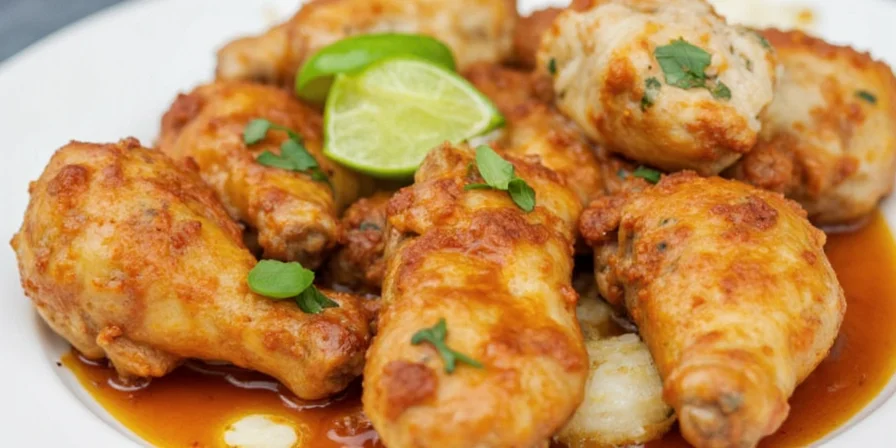









 浙公网安备
33010002000092号
浙公网安备
33010002000092号 浙B2-20120091-4
浙B2-20120091-4